#ChooseToChallenge !!
The future is female and downright so! Throughout history, women have been treated as being inferior, deemed incapable and unworthy, society in itself silently reinforces this ugly narrative as visible in different spheres via patriarchy, sexism, underrepresentation and sexual assault.
We live in a world where women, although evidently loaded with great ideas, therefore transforming our space, are all too often underestimated and basically deemed non existent.
Women, black women especially, have forever had the cards stacked against them, bereft of opportunities and denied well deserved accolades, but thankfully with each passing day, the dictate is changing. The alarm sounding real loud: women are equally capable of accomplishing just about anything, no mountains high enough can erase that fact.
In the spirit of International Women’s Day, we dive down history lane in homage of black power, black resilience, as we celebrate black women pioneers who have enacted change. Inspiring figures who trashed baseless sterotypes deeming black skin incapable and unworthy by beating the odds of extreme poverty and slavery to become influential against all odds.
We celebrate five earliest black millionaires who survived assassination attempts, oppression, lynching, baseless lawsuits among other horrendous attempts to bring them down because they dared succeed and pave an easier way for a new generation of wealth builders : talk celebrities including Oprah – the first black female billionaire in history, Diddy, Beyoncé, JayZ, business moguls Aliko Dangote, Nassef Sawiris, Nicky Oppenheimer amongst others.
We bring you a glimpse of the first African American millionaires:
1. Annie Turnbo-Malone
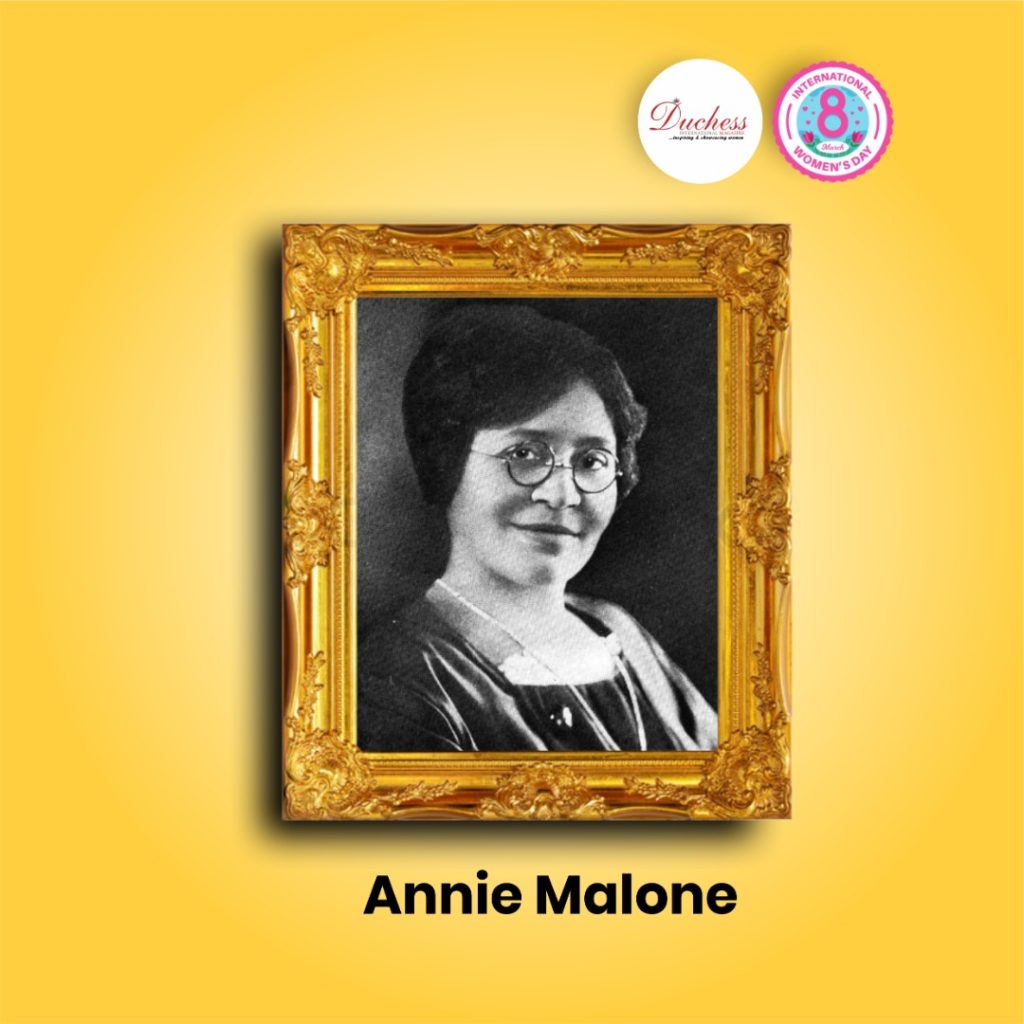
American businesswoman, inventor and philanthropist Annie Minerva Turnbo Malone is considered to be one of the first African American women to become a millionaire.
Annie Minerva Turnbo-Malone became a millionaire by inventing the first national brand of hair products.
Born 9 August 1869, in Metropolis, Illinois, United States, to formerly enslaved parents and orphaned at a young age, the self taught chemist while in high school developed a passion for chemistry. Forced to withdraw from school due to frequent illness Turnbo’s fascination with hair and hair care grew.
After brushing up on her skills with chemistry and hair care, Turnbo in the 1900s began to develop her own revoluntionary hair-care products which helped the growth of African American hair unlike what was available in the market at the time. Her own line of non-damaging hair straighteners, special oils, and hair-stimulant products for African-American women was named “Wonderful Hair Grower”.
By 1918, her empire had expanded and received wide spread acclaim. She established Poro College, a cosmetology school and center. Poro College applaudably employed nearly 200 people in St. Louis. Through its school and franchise businesses, the college created jobs for almost 75,000 women in North and South America, Africa and the Philippines.
By the 1920s, Annie Turnbo Malone had become extremely wealthy – Poro had a reported assets of $14 million, making Malone the first recorded female African-American millionaire. Her business thrived until 1927.
Although Malone had amassed a fortune, she lived modestly, rather, investing in philanthropy, giving to thousands of dollars to the local black YMCA and the Howard University College of Medicine in Washington, DC.
On May 10, 1957, self taught chemist, entrepreneur and philanthropist, Annie Turnbo, known for the Development of mail-order process for beauty care products,
African American philanthropy and
Mentorship of beauty mogul Madam C. J. Walker
suffered a stroke and died at Chicago’s Provident Hospital at age 79.
Although her legacy has been greatly overlooked with Madam CJ Walker taking centre stage, Annie Turnbo Malone’s remains by fact a pioneer in the African American beauty and cosmetic business.
The narrative is changing in recent years as cited in part of Donald Trump’s 2019 proclamation on Black History Month which reads:
“Annie Malone … became one of the most successful entrepreneurs in America at the turn of the century and provided opportunities for African Americans to pursue meaningful careers,” the proclamation read in part.
2. Madam C.J. Walker
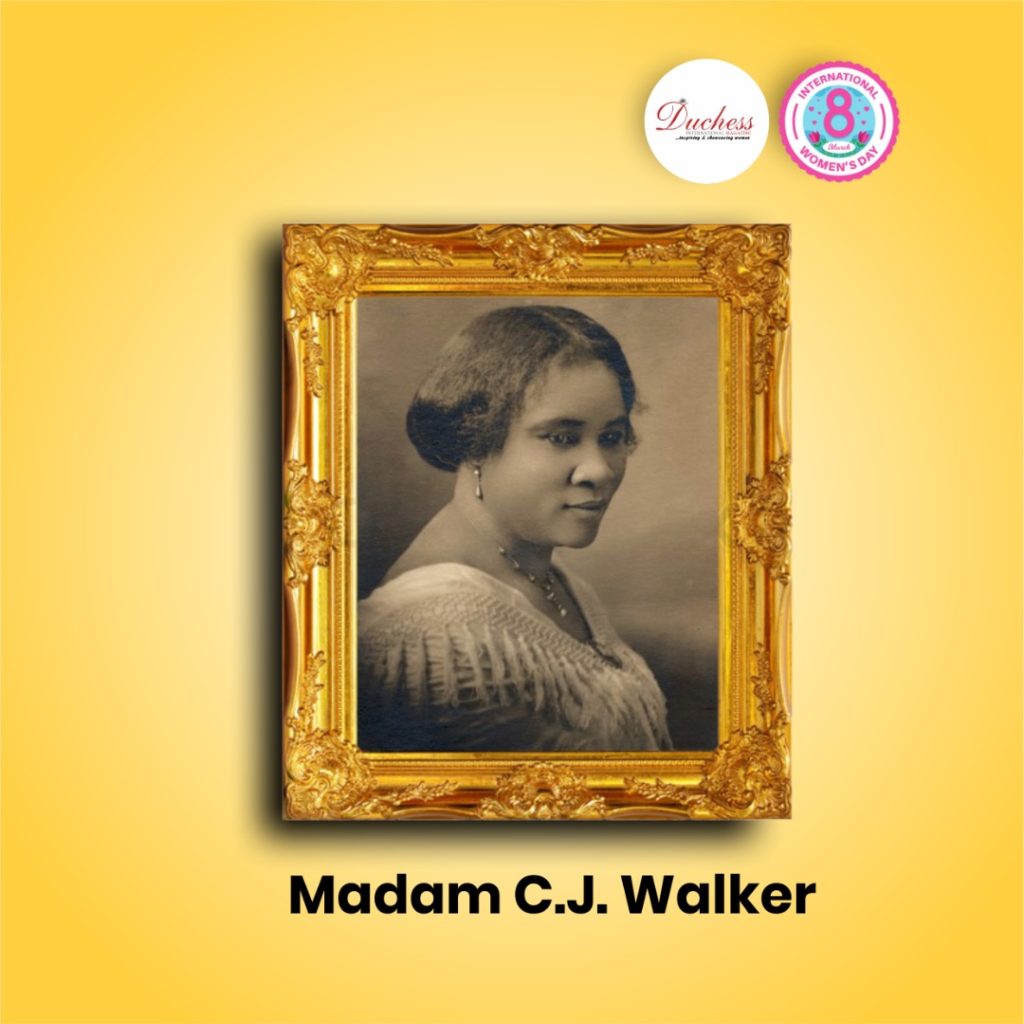
Walker, no doubt, one of the wealthiest Americans of the early 1900s, according to several outlets is credited as the first black self made millionaire. Although widely contested, Madam C.J. Walker currently holds the Guinness World Record as the first-ever self-made millionairess. Guinness, reports her assets, worth over $1 million and her wealth is well-documented, so she gets the prestigious title.
Madam C.J Walker earned repute in the U.S. for being Founder of Madam C. J. Walker Manufacturing Company. The self made millionaire made a fortune by developing and marketing a line of cosmetics and hair care products for black women. She was also known for her philanthropy and activism.
African American entrepreneur, philanthropist, and political and social activist, Sarah Breedlove was born December 23, 1867 in Delta, Fifth Military District (Louisiana), the first child in her family born into freedom after the Emancipation Proclamation was signed. Orphaned at the age of seven, Breedlove moved to Vicksburg, Mississippi, at the age of 10, where she lived with Louvenia and her brother-in-law, Jesse Powell. To make ends meet, she started working right from a childhood as a domestic servant.
In 1888, Madam C. J. Walker and her daughter moved to St. Louis, where three of her brothers lived. While there, Madam C.J. Walker who suffered hair loss and other scalp ailments, including baldness, was inspired to learn a great deal about hair from her brothers who were barbers. Later in 1903, Walker, became a commission agent selling products for Annie Malone, an already established African-American hair-care entrepreneur, proprietor of the top black hair care product company in the country – Poro Company.
While working for Malone, Breedlove gathered knowledge and soon went ahead to develop her own hair care line. Just after a year working for Malone, Walker started her own company marketing similar products.
Malone paved way for Walker by giving her, a then laundress her first job as a hair care sales agent. Madam C.J. Walker at the time went by the name Sarah Davis or Sarah McWilliams.
Following her marriage to Charles Walker in 1906, at about age 38, Sarah became known as Madam C. J. Walker. With advertising and promotion advice from her husband and business partner, she marketed herself as an independent hairdresser and retailer of cosmetic creams, going door to door teaching other black women how to groom and style their hair.
Madam C. J. Walker Manufacturing Company climbed untold heights between 1911 and 1919, employing several thousand women as sales agents for its products. By 1917, the company claimed to have trained nearly 20,000 women. Dedicated to women empowerment, many of her company’s employees, including those in key management and staff positions, were women. Walker trained and showed women the ropes in becoming financially independent.
Breedlove built a factory, a laboratory and a beauty school, she also became a patron of the arts.
Annie Malone and Madam C.J. Walker are credited as two of the most influential entrepreneurs in the United States. Although Walker led a more glamorous life, flaunting her wealth; proudly placed stories in black newspapers about her success and luxury lifestyle: built a $329,000 mansion in Irvington, N.Y, bought a 3.38-carat solitaire diamond set in platinum from Tiffany & Co. and publicized her donations to charity, hence she was regarded as the first self made African American Millionaire.
By the 1920s, after Madam C.J Walker’s death, she was considered the wealthiest African-American businesswoman and wealthiest self-made black woman in America. Her company’s business market expanded beyond the United States to Cuba, Jamaica, Haiti, Panama, and Costa Rica. Walker died of kidney failure at age 51 in 1919 with a net worth of roughly $600,000, according to her great-great-granddaughter’s biography, On Her Own Ground: The Life and Times of Madam CJ Walker.
Walker has since been named as a figure of affluence in black history and Netflix show ‘Self Made’ starring Octavia Spencer and Blair Underwood, following her extraordinary life.
3. Sarah Rector
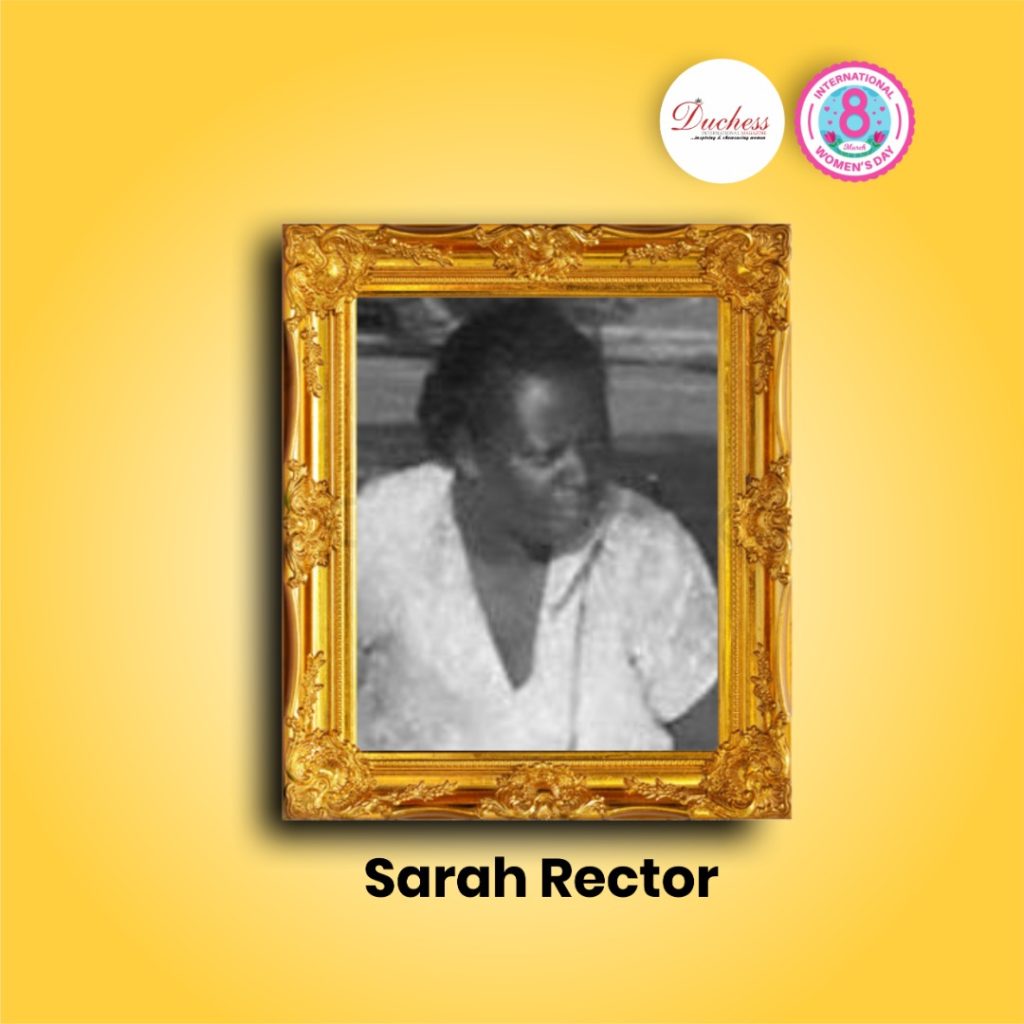 Best known for being the “Richest Colored Girl in the world”.
Best known for being the “Richest Colored Girl in the world”.
At a time when black fortune was almost unheard off, at just 11, Sarah Rector became The Richest Black Girl in America in 1913.
An incredible rag to riches true life story that would give most fairy-tales a run for their money: born the daughter of freedmen – formerly enslaved by Creek Tribe members, in 1902, Rector Rose unbelievably from humble beginings to become the wealthiest girl in America.
Rector and her family, African American members of the Muscogee Creek Nation lived in a predominantly black town of Taft, Oklahoma. Following the Civil War, Rector’s parents, were entitled to land allotments under the Dawes Allotment Act of 1887, about 600 of black children were consequently granted 160 acres of land each as Indian Territory integrated with Oklahoma Territory to form the State of Oklahoma in 1907. Luck shone big, Rector’s allotment from the Creek Indian Nation unlike others was located in the middle of the Glenn Pool oil field, initially valued at $556.50. Rector’s father who was lacking for cash leased his daughter’s parcel to a major oil company in February 1911 to help him pay the $30 annual property tax. Two years later, Rector’s fortune took a major turn when oil driller B.B. Jones had eyes for her land that brought in 2,500 barrels or 105,000 gallons per day. Rector began earning more than $300 a day in 1913, by October, 1913 it had generated $11,567.
The media was quick to learn of the young girl who suddenly had amassed great wealth and immediately sprang into action with accompanying crashing headlines. With widespread fame came numerous requests for loans, money gifts, and four marriage proposals, especially from White German men.
Because of her wealth and change in status, the law required Native Americans, black adults, and children who were citizens of Indian Territory with significant property and money were to be assigned “well-respected” white guardians, so, Rector’s guardianship switched from her parents to a white man named T.J. Porter. Early NAACP leaders were not comfortable with that and fought to protect her and her fortune, BlackPast.org reports. The NAACP was able to convince the Rectors to send Sarah to the Tuskegee Institute’s elementary school called the Children’s Home.
By the time she turned 18, Rector was worth an estimated $1 million, as well as owned stocks and bonds, a boarding house, a bakery and restaurant in Muskogee, Oklahoma, and 2,000 acres of land.
Sarah Rector eventually left Tuskegee with her family and moved to Kansas City, Missouri, where she bought a grand home – the Rector Mansion.
In 1922, she married Kenneth Campbell, the second African American to own an auto dealership. The couple had three sons and were recognized as local royalty and lived large They divorced in 1930. She married her second husband, William Crawford, and lived a relatively quiet life.
As at the time of Rector’s death on July 22, 1967 at age 65 from a cerebral hemorrhage, she had lost most of her wealth during The Great Depression, leaving only some working oil wells and real estate holdings but Rector lived a comfortable life.
4. Mary Ellen Pleasant
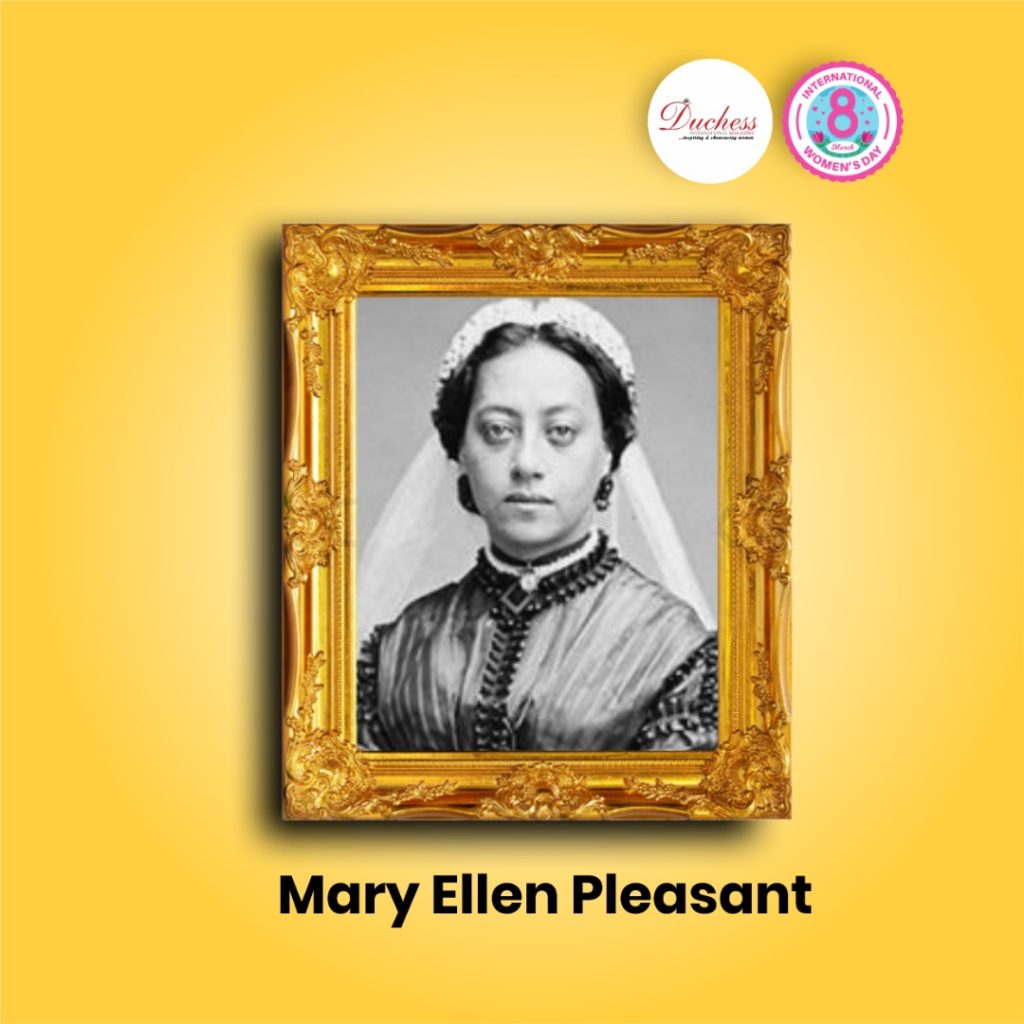
From her slavery background, being separated from her parents and sent to work as a domestic servant in Massachusetts, Mary Ellen Pleasant rose above her disadvantaged roots and rewrote her story to become one of America’s wealthiest.
Pleasant who moved to San Francisco in 1852 at age 38 during the Gold Rush worked there as a domestic servant and chef for wealthy businessmen, reportedly earning roughly $500 a month. She began learning as much as she could about investment and subsequently invested much of her salary and her savings in a chain of businesses including stock market, real estate and other opportunities she overheard, including gold and silver mines.
Pleasant who became one of the first African-American female self-made millionaires in the U.S. amassed her fortune first during the whaling boom of the 1840s and then in San Francisco during the gold rush of 1849.
Mary Ellen Pleasant, a 19th century a “capitalist” by profession worked hard and became a go-to money lender, commodities broker and boarding house operator, alongside manning several other businesses.
Teaming up with a bank clerk named Thomas Bell who helped her pursue some of her investments, the duo forged years-long business partnership and became extremely wealthy. Mary Ellen Pleasant had her hands in laundries, dairies, restaurants and even Wells Fargo Bank, which was founded in San Francisco in 1852.
Secretly, as an abolitionist, she helped support causes aimed at ending the practice of slavery, while also working with the Underground Railroad to help slaves escape to freedom. Pleasant helped support abolitionist John Brown with her Gold Rush, using some of her money to help fund his famous raid on Harper’s Ferry in 1857. She is also known for winning several civil rights cases in court after the Civil War, which won her the name, “The Mother of Human Rights in California.”
In a bid to flee persecution under the Fugitive Slave Act for leading people from slavery to freedom, she moved to San Francisco, California with her husband, John James Pleasant in the 1890s. She inherited her deceased husband’s wealth becoming an investor with her restaurant at 920 Washington Street becoming a meeting place for the city’s most prominent politicians at the time.
Mary Ellen Pleasant often avoided the spotlight as her wealth often brought violent racial backlash
After her investment partner, Bell, died in 1892, his widow sued Pleasant, sadly Pleasant lost control of hers and Bell’s shared multimillion-dollar fortune to his widow after failure to prove it was hers. She died in 1904.
5. Hannah Elias
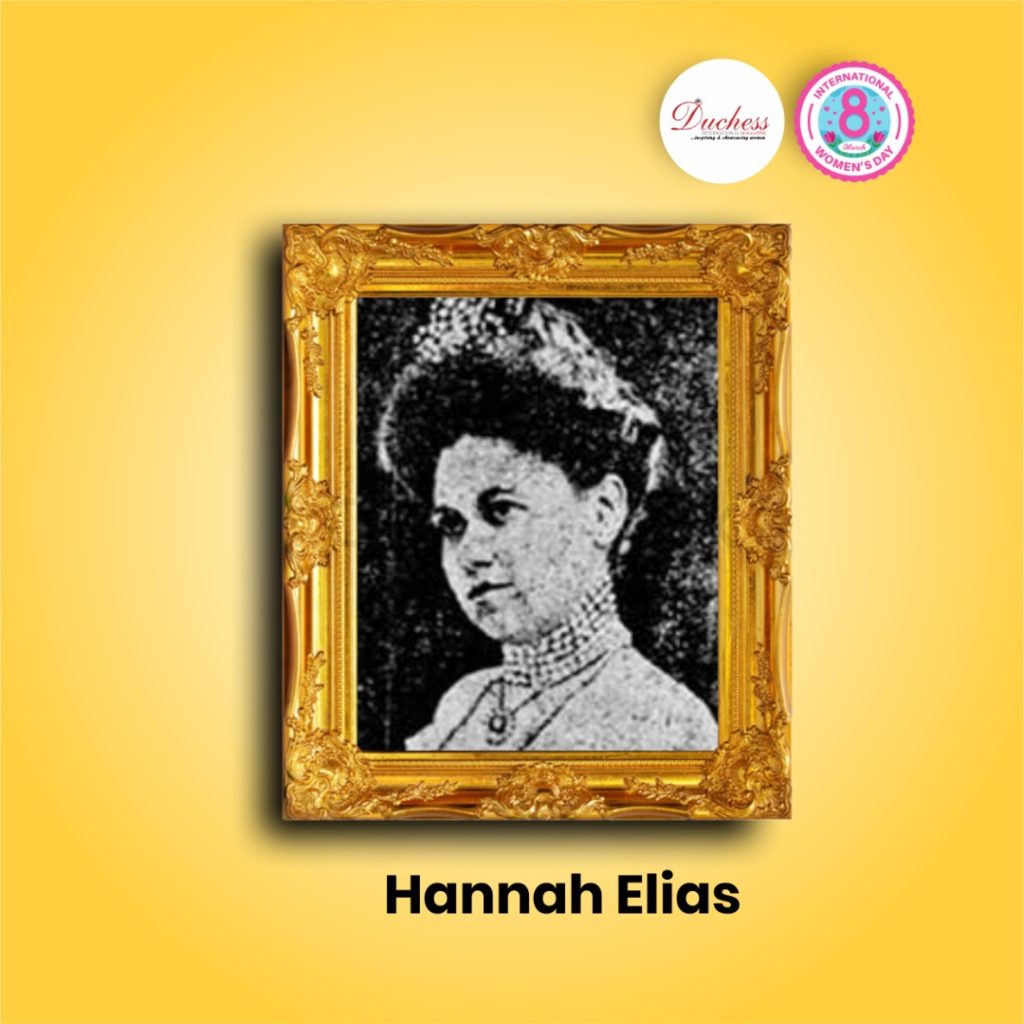
Born in 1863 was once considered the richest Black woman in America.
Elias had a very fair complexion and was in fact “almost white.” Born in a poor neighborhood in Philadelphia to a Black mixed race couple, one of nine children, she built a real estate empire in Harlem, she also engaged in stocks which multiplied her wealth . Although wealthy, Elias often wore a veil at home so that her wealthy white neighbors in New York could not know she was black.
In 1905, Senator John R. Platt accused her of blackmailing him out of $685,385, he sued Hannah for it. Reports had it that the two were in a secret relationship and that Platt had given her large sums of money in the past.
Elias was unafraid and hired her own lawyer, she won.
In all, her properties and goods were valued at approximately $1M.
Elias went on to own four midtown properties, along with a palatial Central Park West mansion.


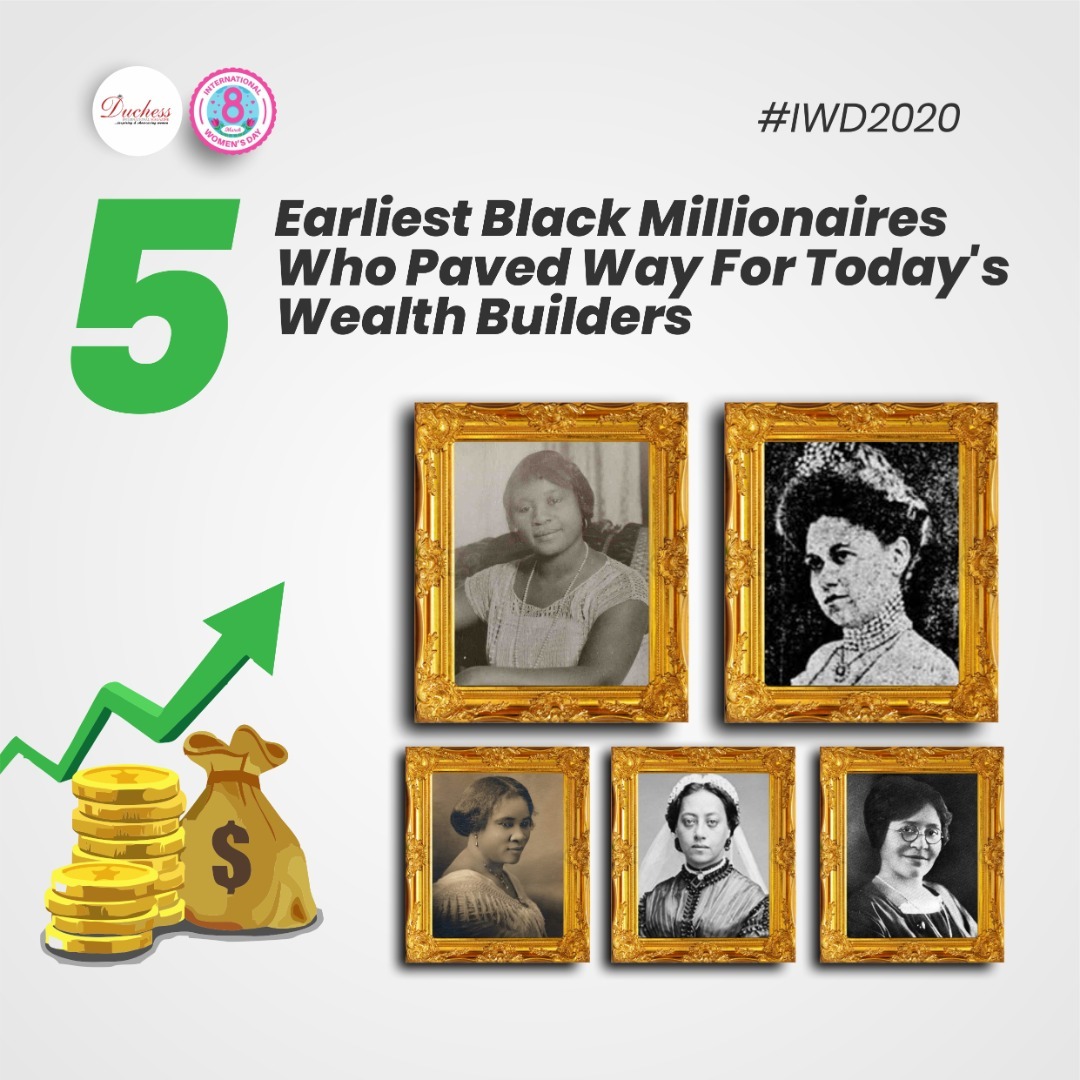

1 comment
The article on Sarah Rector is very well written. Thank you for helping us get the true story out about her. The only thing that needs to be taken care of is the collage pictures of the five women at the beginning. The picture of Sarah Rector is not her, that picture is her mother (Rose Rector). Thank you, Debbie Brown (Sarah’s niece).